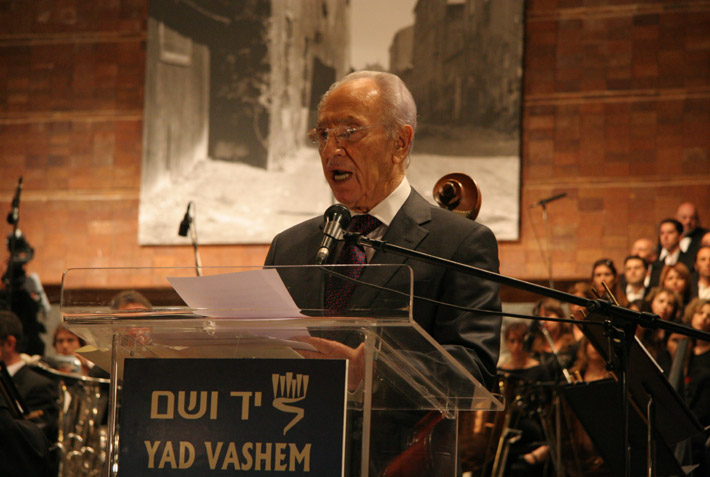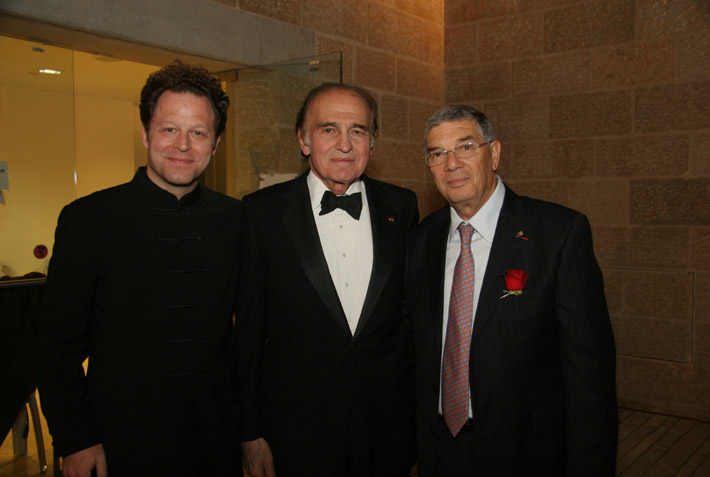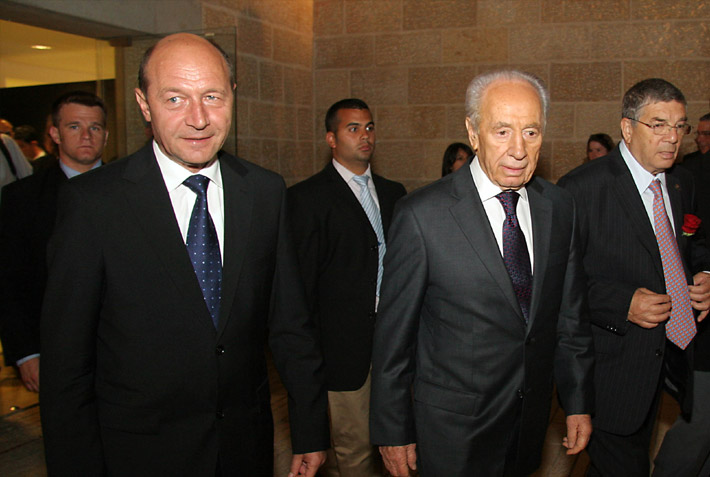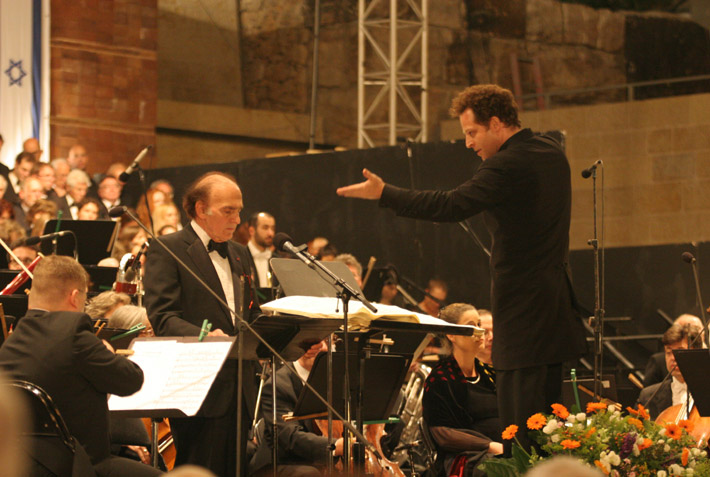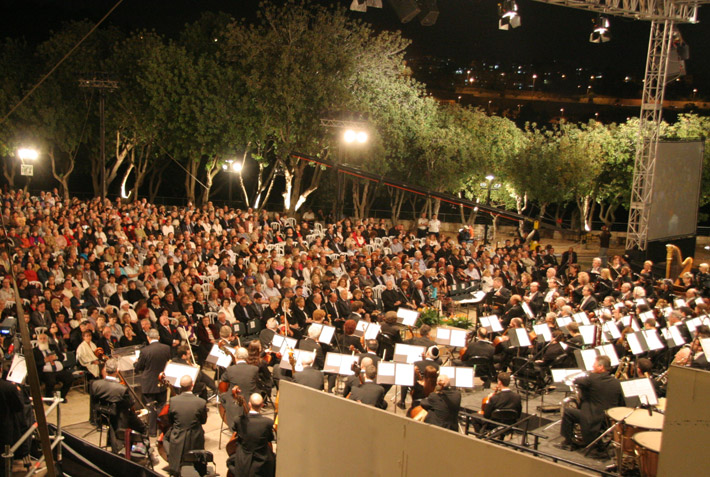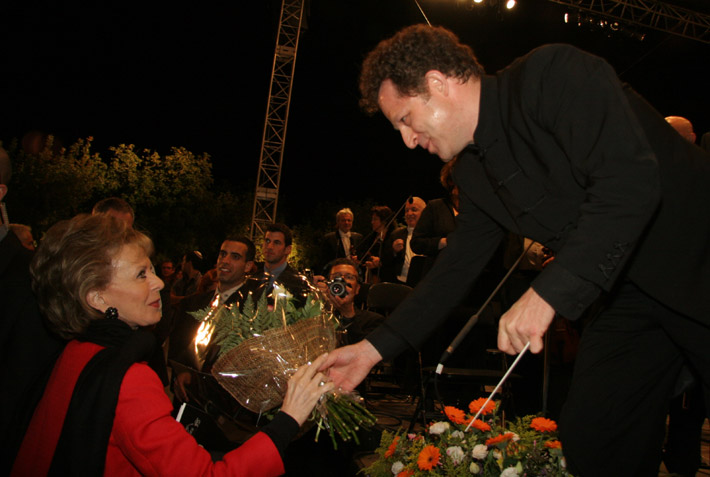01 June 2009
The Israel Philharmonic Orchestra performed Leonard Bernstein’s “Kaddish - Symphony No. 3” with a Libretto, “A Dialogue with God” written and narrated by Holocaust survivor Dr. Samuel Pisar, at a special concert at Yad Vashem, on June 1, 2009. The concert took place in the presence of President Shimon Peres, the President of Romania, HE Traian Basescu, Mrs. Bernadette Chirac, and was sponsored by Mrs. Lily Safra, President of the Edmond J. Safra Philanthropic Foundation.
Maestro John Axelrod, Soloist Danna Glaser (soprano), Narrator Dr. Samuel Pisar, the Tel Aviv Chamber Choir, and singers from the New Israeli Vocal Ensemble and the Ankor Choir performed Bernstein’s “Kaddish” for the first time in Israel. Many Holocaust survivors attended the performance, which was held in partnership with the Organization of Holocaust Survivors in Israel.
“Kaddish” is an expression of the human need to artistically convey a cry from the heart. In the aftermath of the Shoah, such cries have been channeled through a wide range of art forms, including prose, theater, cinema, dance, drawing and sculpture. And of course, through music and poetry, two forms of aesthetic expression so effectively integrated in "Kaddish". This monumental symphony was first heard in Tel Aviv in 1963. In 2001, Holocaust survivor Samuel Pisar composed a new text for the symphony, which he called “A Dialogue with God”. The world premier of Bernstein’s Kaddish symphony along with the text by Pisar took place in 2003, with the Chicago Symphony Orchestra at the Ravinia Festival of Arts conducted by John Axelrod, and has since been performed to international acclaim around the world.
“A Dialogue with God” is influenced by Dr. Pisar’s own biography as a survivor of Auschwitz. Pisar was born in Poland, and survived Auschwitz and Dachau before being liberated by the US Army at the age of 16. He was the only member of his family to survive the Holocaust. After the war, Pisar resumed his education in Paris, and ultimately earned doctorates from Harvard and the Sorbonne, as well as honorary doctorates from other American, European, and Australian universities. Pisar has worked for the UN, UNESCO, and consulted to the US State Department, various House and Senate Committees and President John F. Kennedy. He has been an advocate of human rights globally, and his books have been translated into 20 languages.
“For me, the performance reaches its climax when I recount a heart-wrenching lullaby about how loving, caring and merciful is our God, that my beloved grandmother used to sing to me before her voice was silenced in the ovens of Treblinka. At that moment, I feel as if I am saying Kaddish for her, for my family, for my people…” Dr. Samuel Pisar, in The Genesis of the Work.




